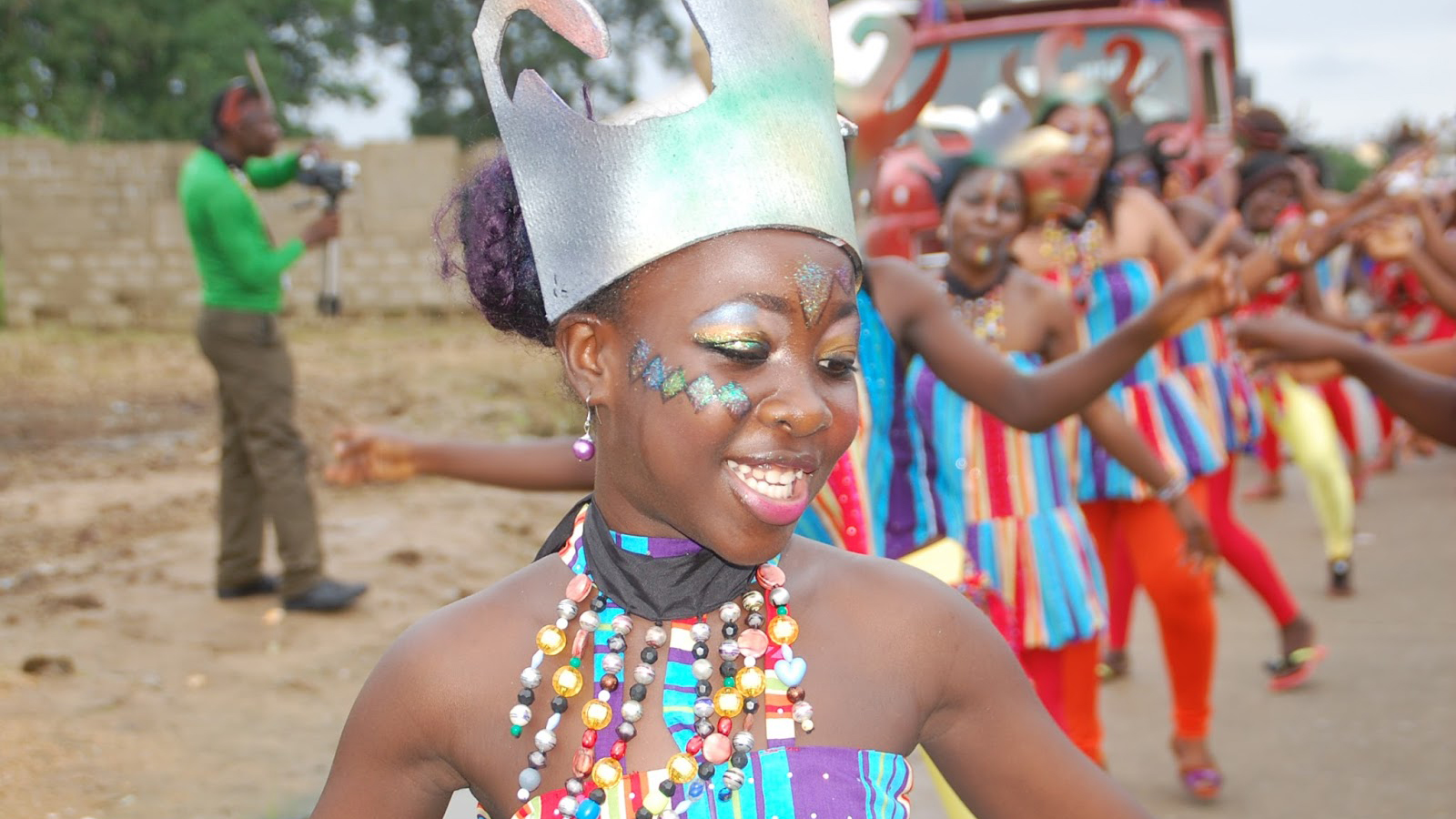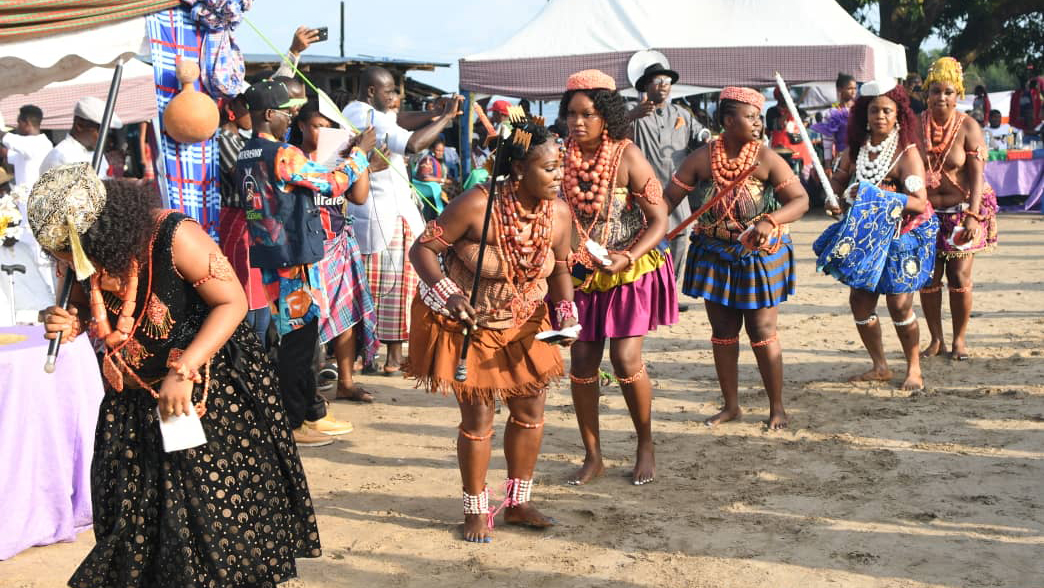 For decades, African stories struggled to break into the global mainstream. While Nollywood,
For decades, African stories struggled to break into the global mainstream. While Nollywood,
Africa’s largest film industry, has long been a cultural force, its productions were often
overlooked outside the continent, confined to diaspora audiences and niche markets. But things are changing. International streaming giants like Netflix and Amazon Prime began investing in African content like never before, and audiences worldwide are tuning in.
“There’s a version of Africa that the world is familiar with, ” says the Advertising Executive and Creative entrepreneur Sam Ochonma.
“But it’s incomplete. We have legends, thrillers, historical epics, and complex human stories that are finally getting the attention they deserve.
”From globally acclaimed films like The Black Book and Shanty Town to international
co-productions like Gangs of Lagos and Aníkúlápó, African cinema is experiencing a moment of unprecedented global visibility. But for storytellers like Sam, this is only the beginning. The challenge now is ensuring that African filmmakers move from being content suppliers to industry stakeholders, shaping their narratives and securing long-term control over their creative output.
Africa’s Storytelling Renaissance
The streaming revolution has provided African filmmakers with the one thing they have
historically lacked: access. For years, distribution challenges and limited financing kept many high-quality African productions from reaching global audiences. Films were either confined to the continent or distributed through unreliable DVD markets. Today, platforms like Netflix and Amazon Prime are changing that dynamic by commissioning and acquiring African films and series, allowing them to compete on the same stage as productions from Hollywood and Bollywood.
“When The Black Book landed on Netflix and became the most-watched non-English film
worldwide, it proved something important,
” Sam explains. African stories are not just culturally relevant—they are commercially viable.”
In 2022, Netflix announced a $63 million investment in African content, commissioning projects across Nigeria, South Africa, and Kenya. Amazon Prime followed suit, signing exclusive deals with Nigerian production companies. These moves reflect a growing understanding that African audiences are not just consumers but cultural exporters, with stories that resonate far beyond the continent.
“We’ve always known our stories had value,
” Sam says. Now, the world is realizing it too”.
Beyond the Stereotypes
Despite this progress, challenges remain. While African filmmakers are gaining global recognition, many still feel constrained by external expectations. The stories that often receive the most international funding are those that fit into familiar themes—poverty, war, resilience.
While these narratives are part of Africa’s reality, they do not define the continent.
“The world is used to a particular type of African story, ” Sam explains.
“Struggle, survival, corruption. Those stories are valid, but they are not the full picture. Where are the African thrillers, sci-fi, or historical dramas? We should be expanding the scope of what African cinema can be”.
He points to recent successes that have begun breaking the mold. Gangs of Lagos, Amazon
Prime’s first Nigerian original film, delivered a high-energy crime thriller set in the streets of Lagos, drawing comparisons to global action blockbusters. Aníkúlápó, a Netflix-backed Yoruba epic, explored African mythology in a way that felt both deeply local and universally compelling.
“These films show that African stories are diverse, ” Sam says.
“We have myths, we have legends, we have psychological thrillers—our storytelling isn’t limited to one perspective.”
While the creative renaissance is exciting, Sam is quick to emphasize that African storytelling
must also be financially sustainable.
“Hollywood isn’t just about great stories—it’s a business,” he says. start thinking that way too.
” African filmmakers need to Historically, Nollywood’s success was built on volume. Producing thousands of films a year with minimal budgets allowed the industry to thrive domestically. However, to compete globally, African films need more investment in production quality, marketing, and distribution.
“We can’t keep making films with a $50,000 budget and expect them to compete with Hollywood films that cost $100 million, ” Sam explains.
“If we want to scale up, we need serious investment—from both international partners and African investors who believe in our industry.
Netflix’s commitment to Africa is a step in the right direction, but Sam believes the next phase should involve more African ownership.
“It’s great that these platforms are giving African films global audience, but we need to be at the table where these deals are made. We need more African-led production companies, more global streaming platforms, more co-productions with international studios, and better funding models that ensure long-term growth.”
Training the Next Generation of African Filmmakers
Sam’s vision extends beyond producing films; he wants to build a sustainable ecosystem for
African storytellers. Through The Hook Ent Academy, he is working to ensure the next
generation of African film makers, screen writers, producers are trained and well equipped“There’s no shortage of talent in Africa,
” he says. training, to international networks.”
“The issue is access—access to funding, to Platforms like Netflix have started offering training programs for African filmmakers, but Sam believes there needs to be more investment at the grassroots level.
“It’s not just about getting one or two breakout films, ” he explains.
“We need a whole industry of African creatives who are equipped to tell our stories at the highest level.”
What’s Next for African Cinema?
The global demand for African stories is rising, and establishments like The Hook Ent, are
determined to meet that demand on their own terms. With upcoming projects like missing Dieko, a psychological thriller, they are pushing beyond traditional formulas and experimenting with new genres.
“We have the potential to create global blockbusters, ” he says.
“Not just films that do well in Africa, but films that dominate worldwide. It’s time for African cinema to think bigger.”
The world is ready for African stories—but for the industry to truly thrive, African filmmakers
must take ownership of their narratives, secure the right investments, and ensure that their
stories are told at the scale they deserve.
“This is our moment, ” Sam says.
“African storytelling is no longer an afterthought—it’s a global force. Now, we just have to make sure we control where it goes next.”






